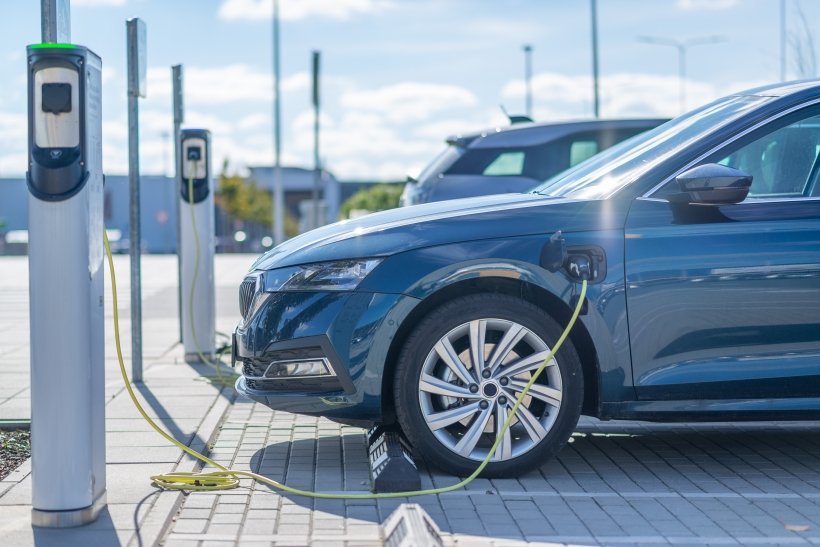How Atlanta’s DUI Enforcement Might Adapt to Autonomous Vehicles

How Atlanta’s DUI Enforcement Might Adapt to Autonomous Vehicles
Law enforcement officers play an essential role in combatting DUI incidents and maintaining traffic safety. By enforcing DUI laws, conducting sobriety checkpoints, and spreading public awareness campaigns about alcohol consumption, law enforcement can reduce accidents while saving countless lives.
Autonomous vehicles are on their way, with automobile manufacturers racing to develop and perfect this technology. But how might law enforcement respond?
Level 0
Over the next decade, some cars will employ Level 3 or 4 autonomy for some or all of their operation, leaving some humans not fully engaged with driving tasks such as daily commutes or running errands such as picking up online food deliveries. Conversely, other vehicles may not contain humans at all: some will cruise empty on daily commutes while others run errands like food delivery services without human involvement at all.
Under these circumstances, someone could potentially commit DUI by sitting in the passenger seat without anyone behind the wheel – although current DUI laws don’t seem to cover such an instance as they require someone in control of the car to be operating it.
11Alive Investigates reached out to various metropolitan area police departments for their policies regarding how they punish officers arrested for DUI. Many departments either demote an officer to civilian status or defer them from operating city vehicles if convicted, usually temporary punishments.
Level 1
An arrest for driving under the influence in Atlanta can carry serious penalties that include misdemeanor or felony charges, significant fines and license points; it’s a serious offense that affects your ability to work and get to work safely and on time. But did you know that DUI laws are changing?
Law enforcement officials said their first challenge will be identifying vehicles operating autonomously and developing ways of communicating with those vehicles.
At present, Georgia law only permits drivers to get a DUI by driving while impaired by alcohol or drugs. Since these substances can impair judgment and reaction times necessary for safe driving, the legal limit has been set at 0.08 blood alcohol content (BAC).
When Georgia police officers are arrested for DUI, it falls to their respective departments to punish them appropriately. 11Alive Investigates reached out to several metro-area agencies asking how they approach this situation.
Level 2
At this level, AVs become completely autonomous, discharging human responsibility for what they do or don’t do. At this point, it becomes unlikely that AVs could evade law enforcement authorities.
The panel identified three top priority needs as priorities for law enforcement: (1) establish clear communication and collaboration between law enforcement and AV manufacturers; (2) develop ways to verify vehicle operation properly, and (3) enable law enforcement access to data generated by an AV during incident response or investigation. Other needs may include training officers how to interact with them, and ensure they deliver necessary information at the right time.
Georgia’s Peace Officers Standards and Training Council (POST) can revoke an officer’s certification if they are arrested for DUI; however, Harvey notes that typically POST does not see DUI arrests as grounds for action against an officer; although this could change as insurers that support IID legislation push for stricter anti-drunk driving measures.
Level 3
Level 2 autonomous vehicles such as Tesla Autopilot or GM Super Cruise still require human drivers; therefore if an individual who uses such systems while under the influence of alcohol is operating it, they could face charges of DUI.
As technology develops, this becomes less straightforward. AVs with levels 4 and 5 autonomy may be programmed to operate within certain restrictions; law enforcement will likely not be able to identify who operates them.
The American Dental Association (ADA) suggests that police departments create clear protocols for identifying and dealing with vehicles in automated mode, and to conduct workshops or ride-alongs in order to educate officers on how these vehicles work. No matter their model or make, officers should recognize when there’s no driver behind the wheel and act accordingly; otherwise they could face penalties that vary by department.
Level 4
Today’s most advanced vehicles on the roads are Level 2 autonomous systems like Tesla Autopilot and GM Super Cruise, which allow a human driver to delegate most of the driving duties to their car while remaining ready to take over when necessary. Level 5 autonomous cars will eventually operate completely autonomously without human interference required.
MADD advocates for the safe development and widespread acceptance of autonomous vehicle (AV) technology, working to ensure law enforcement officers can interact safely with AVs on roadways while laws and regulations adapt with evolving technology. We support efforts that ensure law enforcement personnel can interact with AVs safely.
MADD strongly advocates for IID-like technology in vehicles to detect whether drivers are impaired by alcohol or drugs, thus helping reduce drunk driving accidents as well as police officers having to use deadly force against impaired drivers.
Level 5
Under current system regulations, officers arrested for DUI are often given probation and must attend alcohol/drug awareness classes before their careers can continue. Furthermore, they will typically need to pay a fine and install an ignition interlock device at their residences.
However, should an autonomous car collide with an impaired driver and cause an accident, the law may become murky and MADD supports level four and five autonomous cars as these do not require human drivers.
Panelists agreed that crash investigations will need to adapt as use of autonomous vehicles increases, and stressed the importance of state, county and specialized agencies being aware of cyber security and technology crimes committed via unmanned autonomous vehicle systems, such as ransomware or the transporting of drugs or people on or in these autonomous vehicles.







